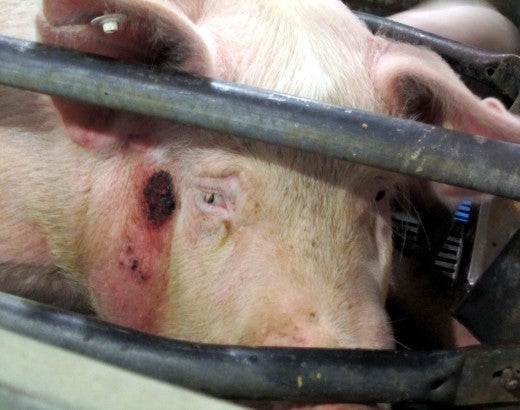It’s no secret, and it’s no surprise. Americans want to know what they’re eating. A 2016 Consumer Reports survey found that a majority of American consumers want labels on the meat, poultry, fish, and produce they buy to reflect country of origin (87 percent) and state of origin (74 percent). But these Americans aren’t getting what they want. And animal welfare is being compromised as a consequence.
In 2015, in a move that crippled the fortunes of American producers, including many of our family farmer allies, Congress repealed Country of Origin Labeling (COOL) for beef and pork products. As a result, meat in the United States is now being sold without country-of-origin disclosure. Repeal was a big gift to multinational companies, which can shop for or produce cheap meat elsewhere in the world, ship it to the United States, and sell it for a premium to unsuspecting consumers.
Today, according to estimates, nearly 75 percent of grassfed beef sold on U.S. grocery store shelves comes from other countries. Under this production regime, animals can be raised in foreign countries under substandard and cruel conditions, the resulting meat being repackaged in the U.S. and sold to the very consumers who have signaled their disapproval of animal cruelty and suffering and their preference for labeling regulations.
The Organization for Competitive Markets and the American Grassfed Association recently filed a petition calling for a change in policy to guarantee that only U.S. domestic meat products can be labeled “Product of U.S.A.” The petition is a call for clarity and an affirmation that American consumers have a right to know that the meat they’re buying was raised by American producers on American soil.
According to Carrie Balkcom, executive director of American Grassfed Association, “This labeling loophole intentionally conceals the transparency consumers desire.”
USDA’s Food Safety and Inspection Service (FSIS) is calling for public comments on this issue, here, until August 17, 2018.
The HSUS has long supported transparency in labeling when it comes to animal agriculture and associated products, and believes that Americans care about the origins of their food. If a labeling scheme grants foreign countries and interests unfair marketing opportunities at the expense of American farmers and ranchers, animals, and consumers, USDA officials ought to hear about it. And if it strengthens the case for improved treatment of animals in the food supply, so much the better.


